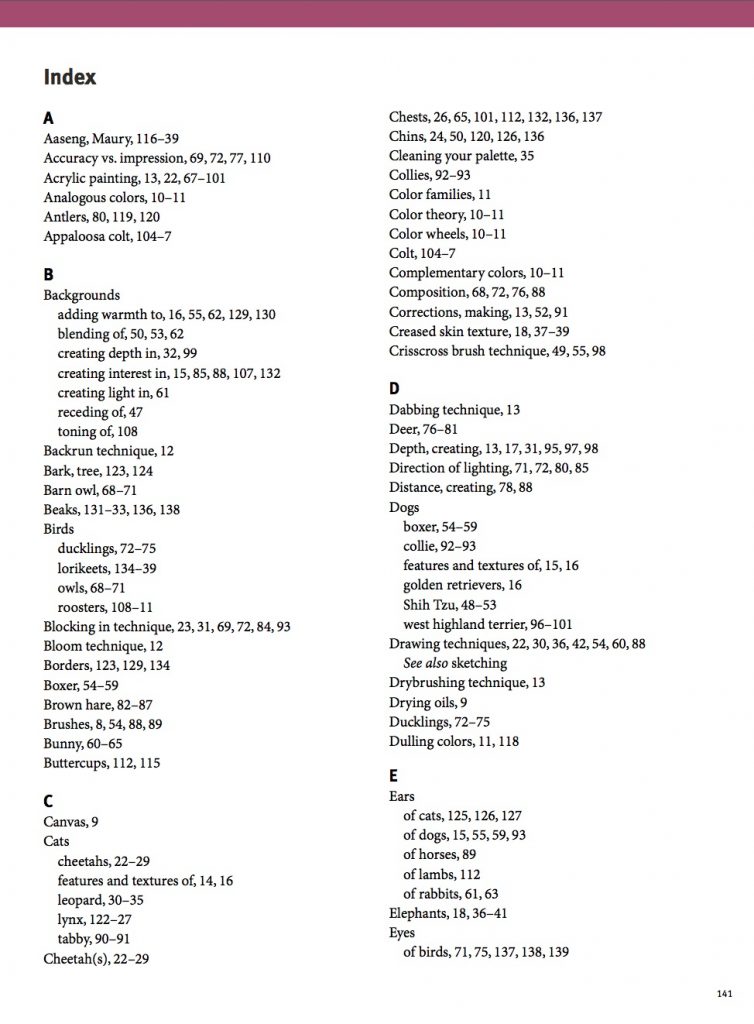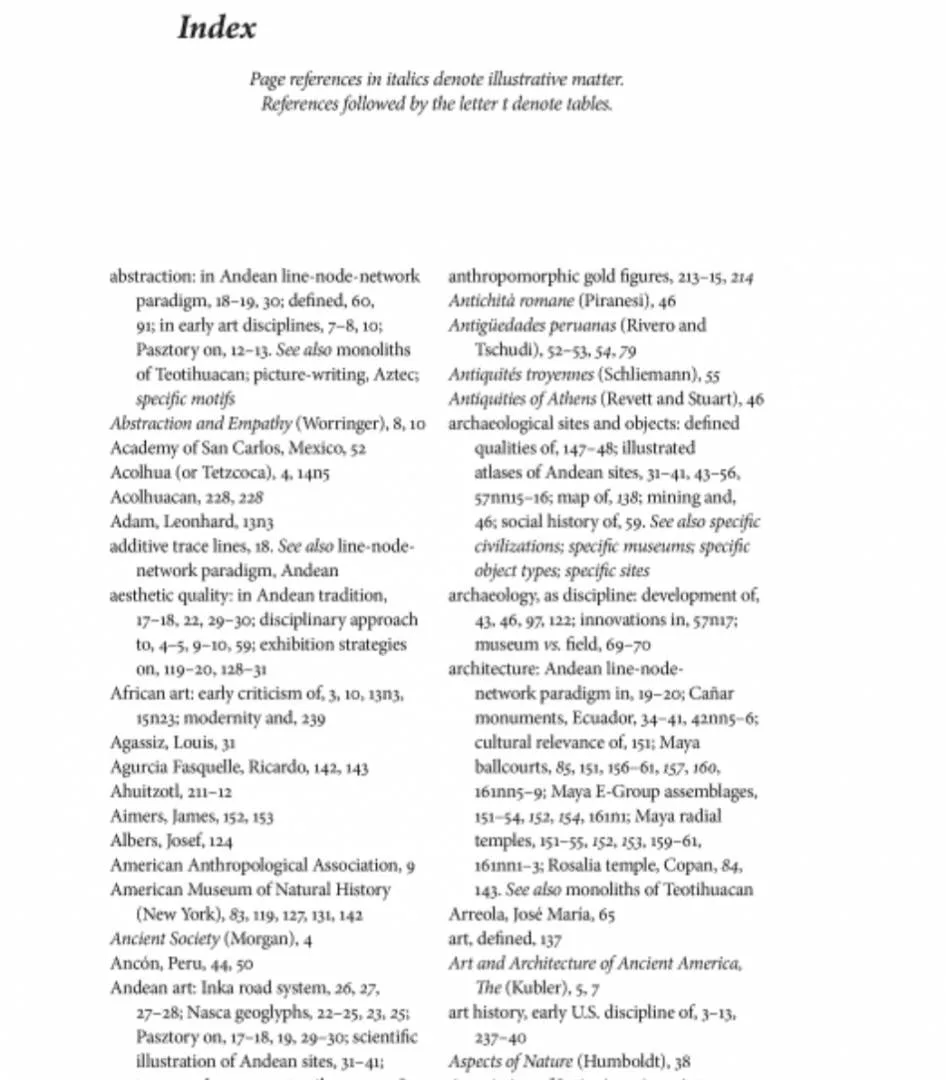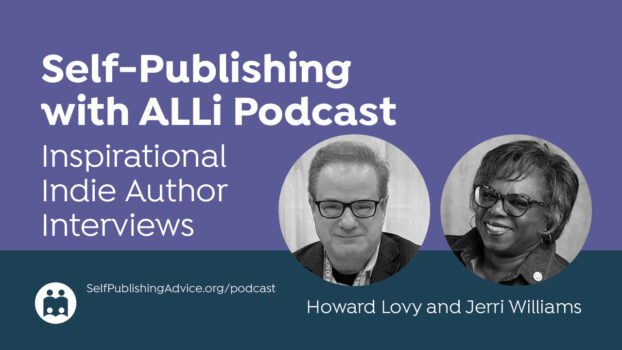Are you a non-fiction author tasked with creating an index for your soon-to-be published book? This list of five FAQs, kindly provided by professional indexer Amron Gravett, who is currently indexing ALLi's guidebook, will help you understand the goal of an index, how to produce an index, and why an index is an essential part of your non-fiction book. The five terms in the Glossary will help you speak index-ese.
What is an index?
An index is a tool that helps readers locate information.
An index contains a road map to the content found within a book.
Theoretically, “an index is a structured sequence—resulting from a thorough and complete analysis of text—of synthesized access points to all the information contained in the text.” (Mulvany, Indexing Books).
A good index is accurate, concise, and provides complete coverage of the book’s information.
The structure of the index is an alphabetical list of main and subheadings connected by a coherent web of synonyms, double postings, and cross-references.
- In traditional print publishing, an index is found in the back of a nonfiction book.
- In digital publishing, an index may be found on a website or at the beginning or end of an ebook.
Do I really need an index?
Absolutely.
If you are publishing a non-fiction book (such as a biography, history book, or guidebook) without an index, then your book lacks one of the most important reference and sales tools available.
A non-fiction reader is looking for information. It is true that most non-fiction readers, librarians, and researchers will browse the index before deciding whether they want to buy the book. They will look for the key ideas, persons, agencies, etc, that interest them.
If there is no index, they will not be able to browse quickly to find what interests them and thus will reconsider buying the book.
Do authors index their own books?
Ideally, no.
Although the author is the expert on the book's subject, the indexer brings an understanding of information architecture, retrieval techniques and objectivity.
The best indexes are produced when an indexer marries the author’s and the reader’s language.
How much does a professional indexer cost?
The cost of hiring an indexer varies and is based upon the content of the manuscript and the type of indexing requested (standalone, database, embedded, or serials).
Average rates are usually between USD $3.50-5.50 (£2.66- £4.175) per indexable page.
The Society for Indexers offers useful advice on hiring and negotiating an indexing fee.
How do I find a professional indexer?
You can locate a professional indexer by searching one of the following websites:
- American Society for Indexing (US), Indexer Locator
- Editorial Freelancers Association (US), Find a Freelancer
- Society for Editors and Proofreaders (UK), Directory of Editorial Services
- Society for Indexers (UK), Directory of Indexers

Sample of a well-compiled index (all images by Amron Gravett)
Glossary of Basic Indexing Terms
concordance
Often confused with an index, a concordance is simply a list of keywords. One of the biggest differences between an index and a concordance is the organization of terms which allows the index to cover the book’s information in its entirety by a structured arrangement of inter-connected headings, subheadings, and cross-references. A computer can produce a very usable concordance but not a very useful index. As indexer Lori Lathrop wrote, “The processing required to create an index happens between your ears, not on your hard drive.”
cross-reference
See or See also cross-references are usually located after the heading and page references. It directs the reader to the preferred term or to another term that is related where more information can be found. It is a form of controlled vocabulary. For example:
<Republic of Ireland. See Ireland>
<performing arts. See also musical theatre; opera>
double-posting
Sometimes information may be looked up under more than one term so an indexer may include the same locators at more than one heading in order to save the time of the reader. These terms are sometimes particular to the content in a particular book. For example:
<animal-human therapy, 51, 88, 123>
<horse-human therapy, 51, 88, 123>
<equine therapeutic programs, 51, 88, 123>
headings and subheadings
The terms used in the index that include subjects, names, and entities. The headings are alphabetized in letter-by-letter or word-by-word sorting order, depending on the publisher's specifications. They are followed by the page numbers to point the reader to the place in the book where the term is located.
locators
This is what an indexer calls page numbers in an index.
OVER TO YOU Non-fiction authors: do you have any top tips about indexing to add to Amron's advice? We'd love to hear them!
For #nonfiction #authors - great glossary & top tips about #indexing your #selfpub books #ww Share on XOTHER USEFUL POSTS FOR NON-FICTION WRITERS FROM THE ALLi ARCHIVE






I am producing a series of individual African American church histories for my area. I requested histories from churches, collected newspaper articles and pictures to publish. Very little information is in my words.
How do I index this book. It is about 200 pages of information.
I can’t applaud this recommendation hard enough! My first book was a thorough, complex overview of a rarely mentioned aspect of a wildly popular subject, self-published because its topic is enough of a niche that publishers did not see an adequate market. It is a serious book, and I wanted readers to know they could trust its substance. The bibliography alone ran to fourteen pages, and there was no way I could get enough distance to the topic to do the indexing.
What the professional index writer returned to me had me gasping: “So that’s what I’ve been writing about!” She had seen themes and connections which had escaped me completely on a conscious level, and in so doing had added layers of relevance. I was astounded to see what she had brought out. The book has been out now for several years, is still doing remarkably well for a work with little marketing, and has been ordered by a number of libraries that would never have touched it without the index. That was an expensive bit of work, but invaluable. If you’re writing nonfiction, you need a competent index!
Timely post as I move forward to creating a Print version of my ebook travel guides.
Thanks for your reply Jay. As you know, indexes in travel guides are very necessary. As a well-seasoned traveler I’d be happy to help if you’d like to contact me. –Amron. Email: [email protected]
Thank you for this information. You can also find indexers in Ireland through the Association of Freelance Editors, Proofreaders and Indexers (AFEPI): http://www.afepi.ie/
Sally, Thanks for sharing. I’ll add it my list. There are so many wonderful organizations for those of us who work behind the scenes in pre-production. Here’s a list of indexing organizations worldwide for reference as well:
-American Society for Indexing (ASI)–http://www.asindexing.org
-Association of Southern African Indexers and Bibliographers (ASAIB)–http://www.asaib.org.za
-Australia and New Zealand Society of Indexers (ANZSI, formerly AusSI)–https://anzsi.org
-China Society of Indexers–http://www.cnindex.fudan.edu.cn
-Deutsches Netzwerk der Indexer (DNI) / German Network of Indexers–http://www.d-indexer.org/
-Indexing Society of Canada / Société canadienne d’indexation (ISC / SCI)–http://indexers.ca
-Institute of Certified Indexers (ICI)–http://www.certifiedindexers.com/
-International Federation of Libraries Associations and Institutions (IFLA) – Classification and Indexing Section–https://www.ifla.org/subject-analysis-and-access
-Nederlands Indexers Netwerk (NIN) / Netherlands Indexing Network–http://www.indexers.nl/
-Society of Indexers (SI)–http://www.indexers.org.uk